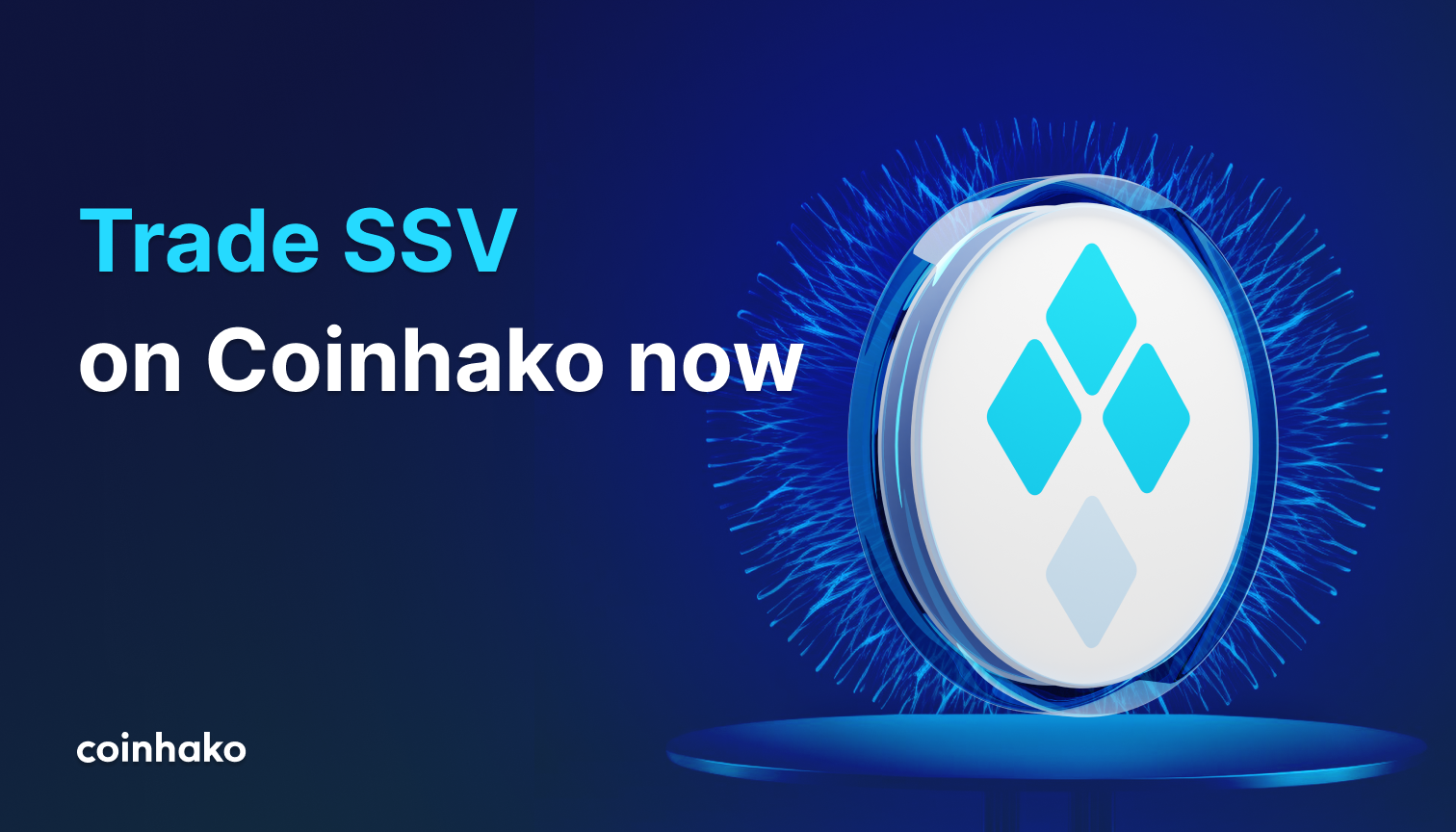We are thrilled to share that SSV Network (SSV) is now listed on Coinhako!
What are SSV Network and SSV?
SSV Network is a permissionless Ethereum protocol that facilitates splitting validator duties among trust-minimized node operators, improving resilience and security. The network supports diverse staking applications and is governed by a decentralized autonomous organization (DAO) — this approach aims to boost resilience and uptime without compromising validator key and withdrawal address control. The network's architecture enables easy setup, allowing validators to run without specialized hardware or complex coordination.
The SSV token grants voting rights and participation in the decision-making of the SSV network DAO. In addition to being used for governance and paying platform fees, it is also distributed as part of the project's grants program for developers building on the network and as rewards for operators.
There is a total supply of 11,012,871 SSV and SSV has traded for US $$65.93 at its peak.
How does SSV Network work?
SSV Network uses Secret Shared Validator technology to encrypt and split a validator key into 4 KeyShares among non-trusting nodes, addressing the centralization issue with validator keys. This allows the network to operate even if one node goes down or is faulty. The network has three main participants:
- Stakers, who lock up ETH to secure the Ethereum network
- Operators, who manage validators and perform duties on the Beacon Chain
- DAO members, who help govern the networkThere is a reciprocal reward mechanism where operators manage validators and generate ETH rewards for stakers, receiving $SSV in return.
The ssv. network architecture consists of two layers:
- The SSV P2P network, which is the execution layer responsible for operating the network's validators.
- The contract layer, which is the management/governance layer where changes are implemented and network fees are paid.
Non-trusting Nodes
Non-trusting nodes do not need to trust other nodes to operate which allows for optimization, as a faulty node will not impact network performance. This decentralization helps Ethereum resist single points of failure. One key use case for non-trusting nodes is in staking applications, making them more decentralized, fault-tolerant, and secure. Applications like staking pools, staking services, solo stakers, DAOs, institutional stakers, and bridges would benefit from this infrastructure, which also becomes more scalable.
Why does SSV Network stand out?
The SSV Network employs a decentralized staking infrastructure that enables the distributed operation of an Ethereum validator. This setup enhances the network's fault tolerance and security by mitigating the risks associated with centralized points of failure.
The network's fault-tolerant design is achieved by requiring a specific signature threshold for operations that ensures that the distributed validator clusters are resilient against the operational faults of node operators, thereby significantly reducing the risk of slashing and downtime.
The SSV Network also emphasizes on a community-centric approach, operating as a fully decentralized and open ETH staking network. Its governance model is based on DAO principles, ensuring the network remains aligned with Ethereum's ethos of decentralization.coin
What can you do with SSV on Coinhako?
SSV will be available for users to trade across all swap pairs on Coinhako.
To gain access to any of these trading pairs, you can either:
- Fund your SGD wallet on Coinhako instantly with PayNow (or any other supported payment method)
- Purchase SSV instantly with Visa / Mastercard
Please note that the sending and receiving of SSV will not be available for this release.
Risk Warning on Digital Payment Token Services
Hako Technology Pte Ltd ("Coinhako") is licensed to provide digital payment token services under the Payment Services Act 2019 (No. 2 of 2019).
The Monetary Authority of Singapore ("MAS") requires us to provide this risk warning to you as a customer of a digital payment token ("DPT") service provider.
Before you pay your DPT service provider any money or DPT, you should be aware of the following.
- Your DPT service provider is licensed by MAS to provide DPT services. Please note that this does not mean you will be able to recover all the money or DPTs you paid to your DPT service provider if your DPT service provider’s business fails.
- You should not transact in the DPT if you are not familiar with this DPT. This includes how the DPT is created, and how the DPT you intend to transact is transferred or held by your DPT service provider.
- You should be aware that the value of DPTs may fluctuate greatly. You should buy DPTs only if you are prepared to accept the risk of losing all of the money you put into such tokens.
- You should be aware that your DPT service provider, as part of its licence to provide DPT services, may offer services related to DPTs which are promoted as having a stable value, commonly known as “stablecoin”.
Visit: Coinhako.com/risk-disclosure for more information.
